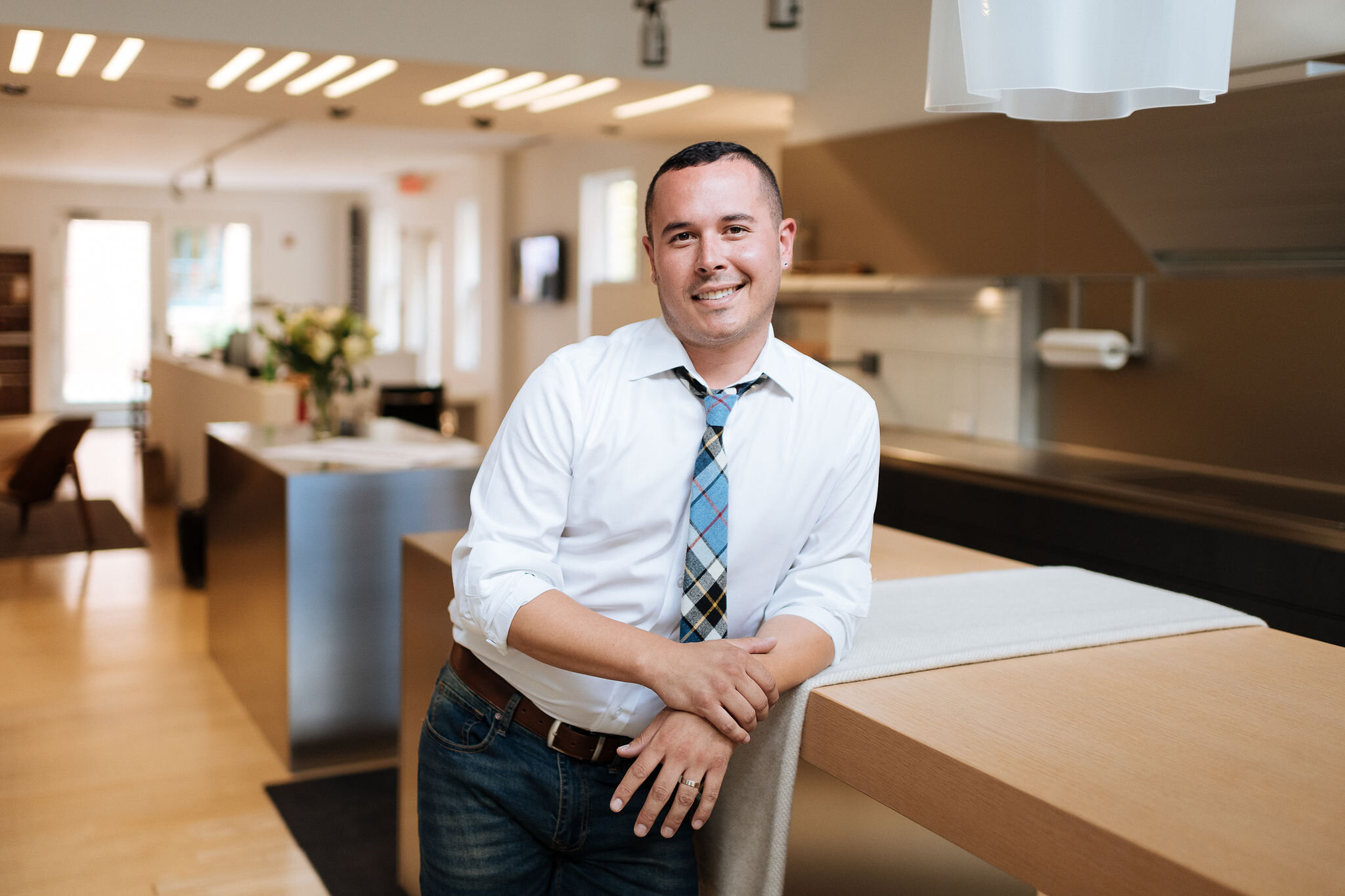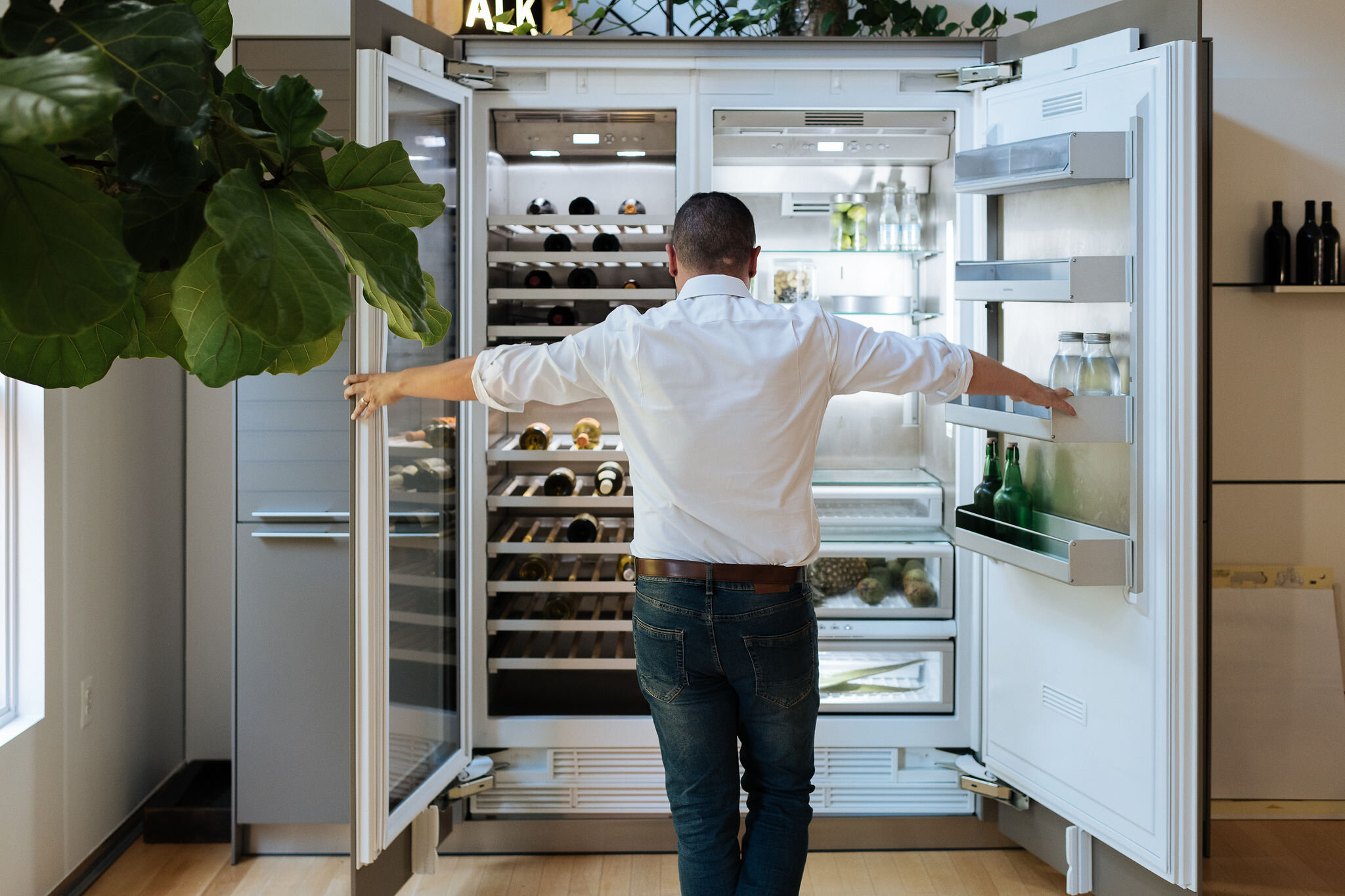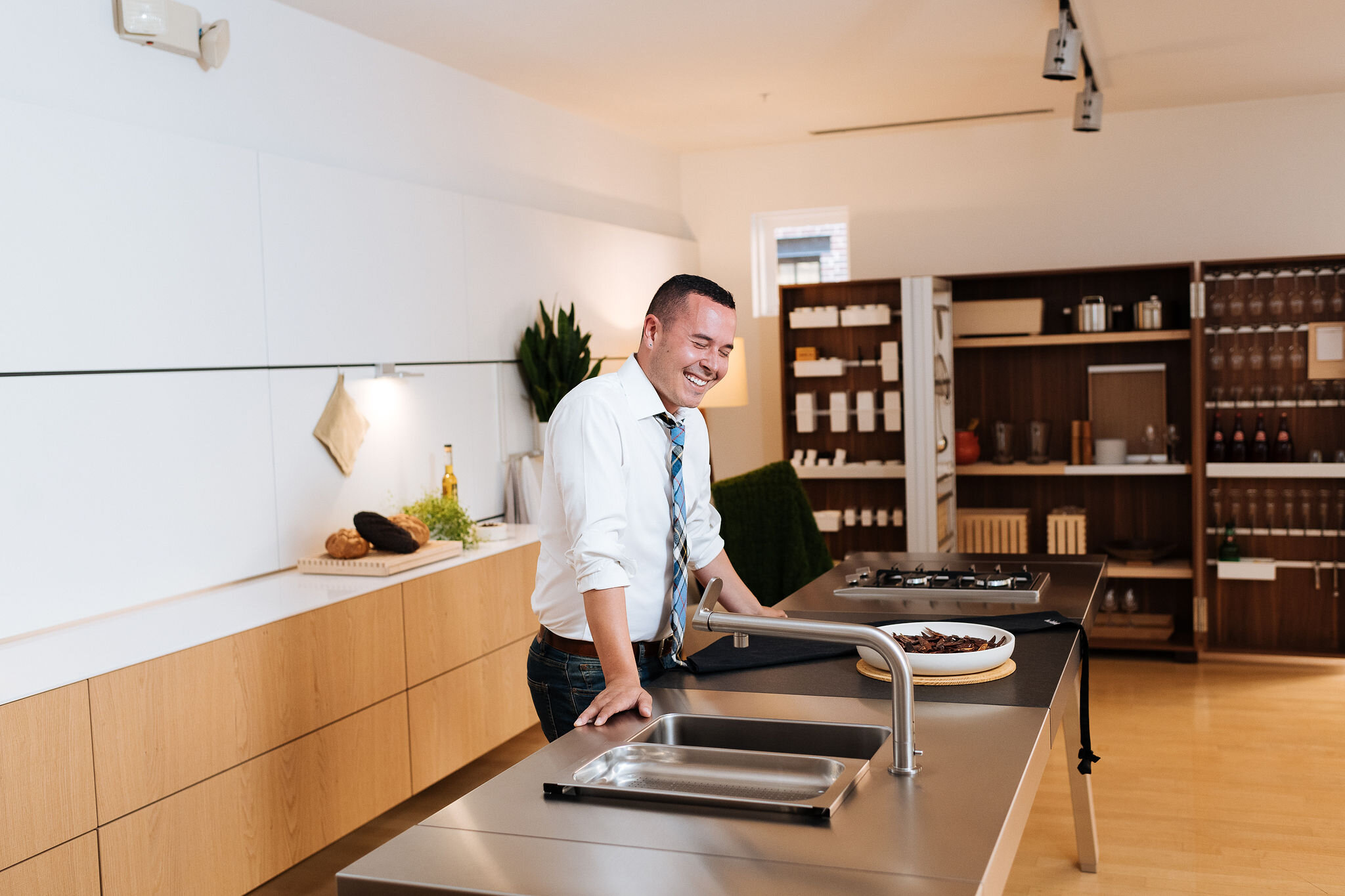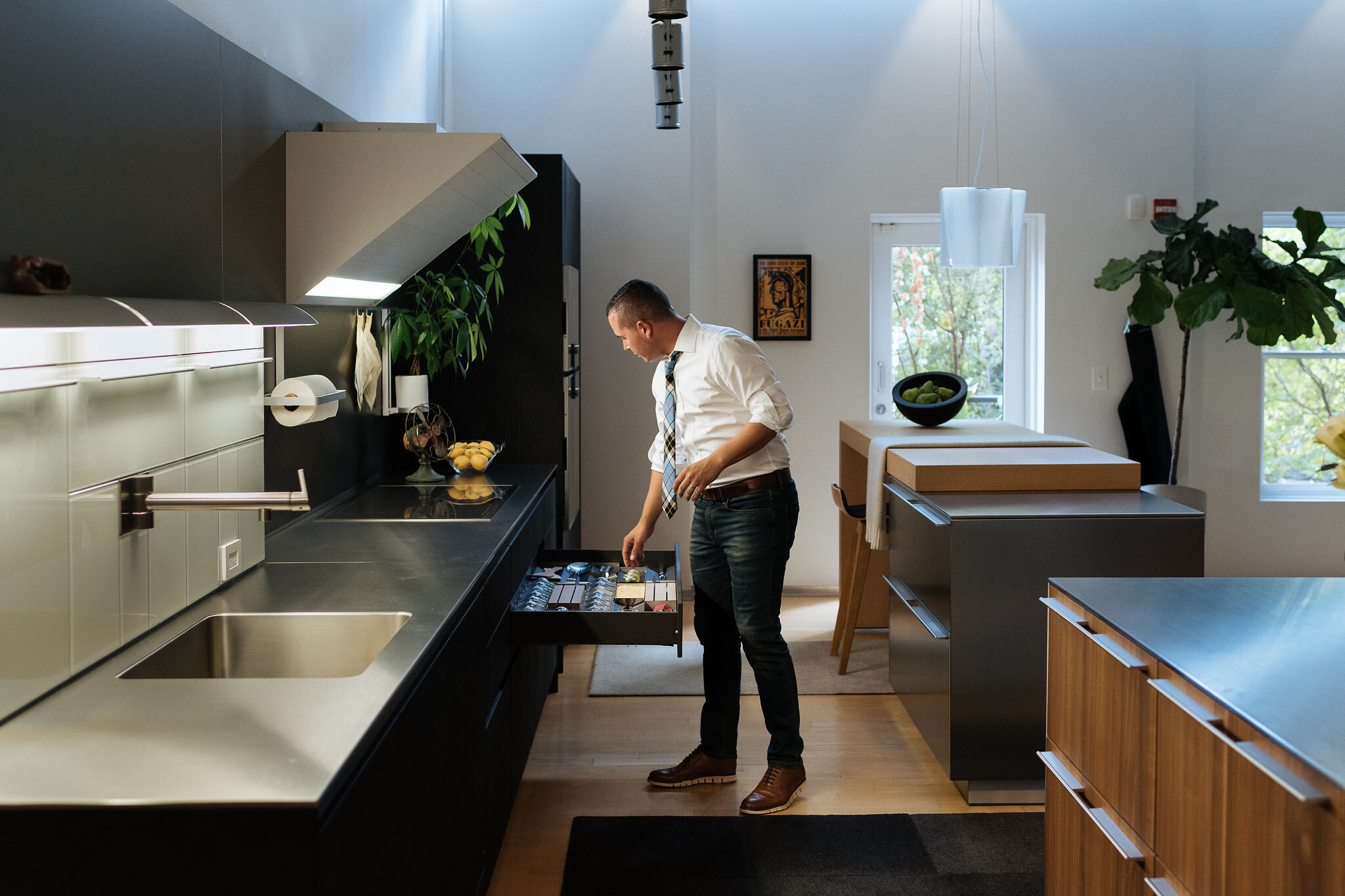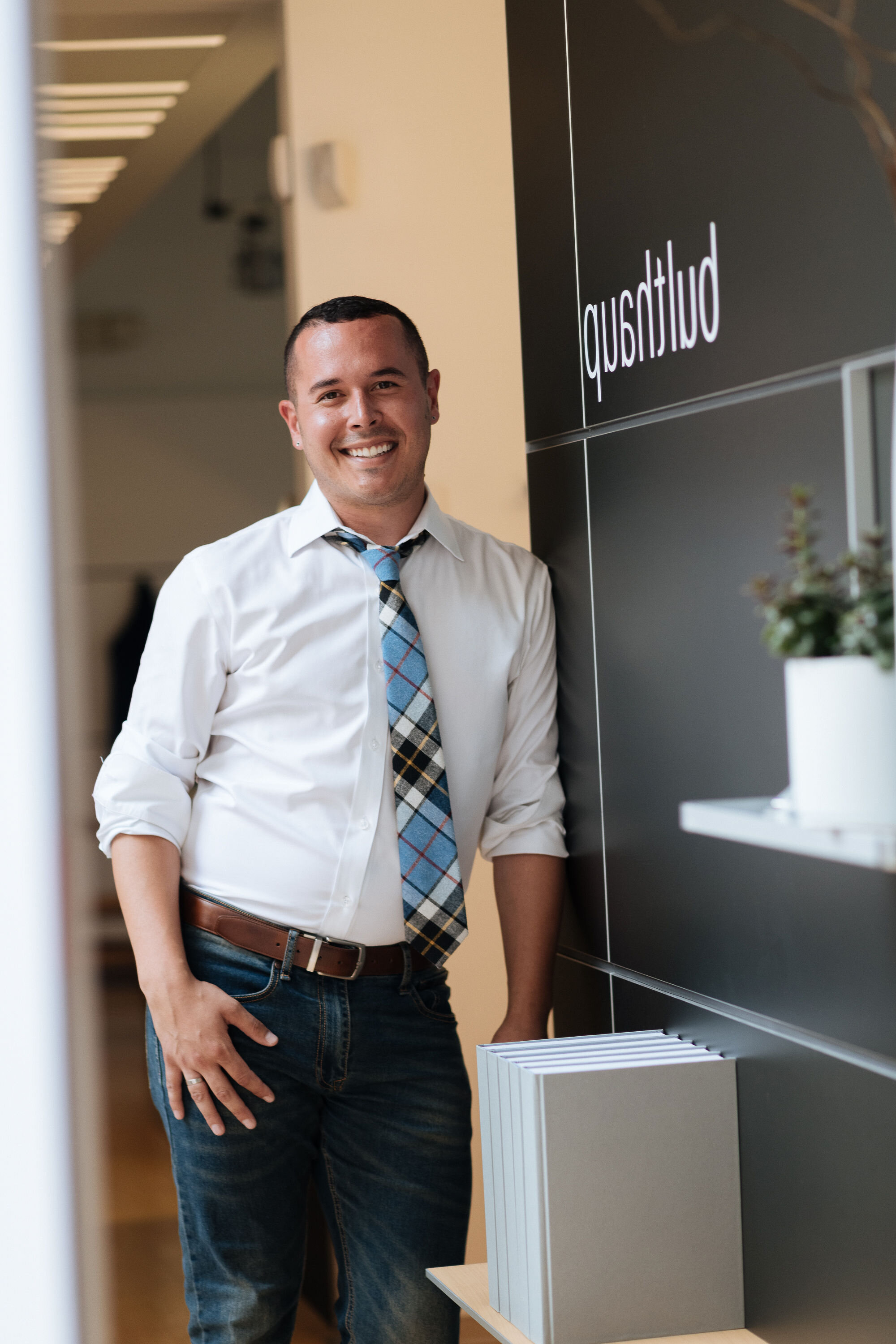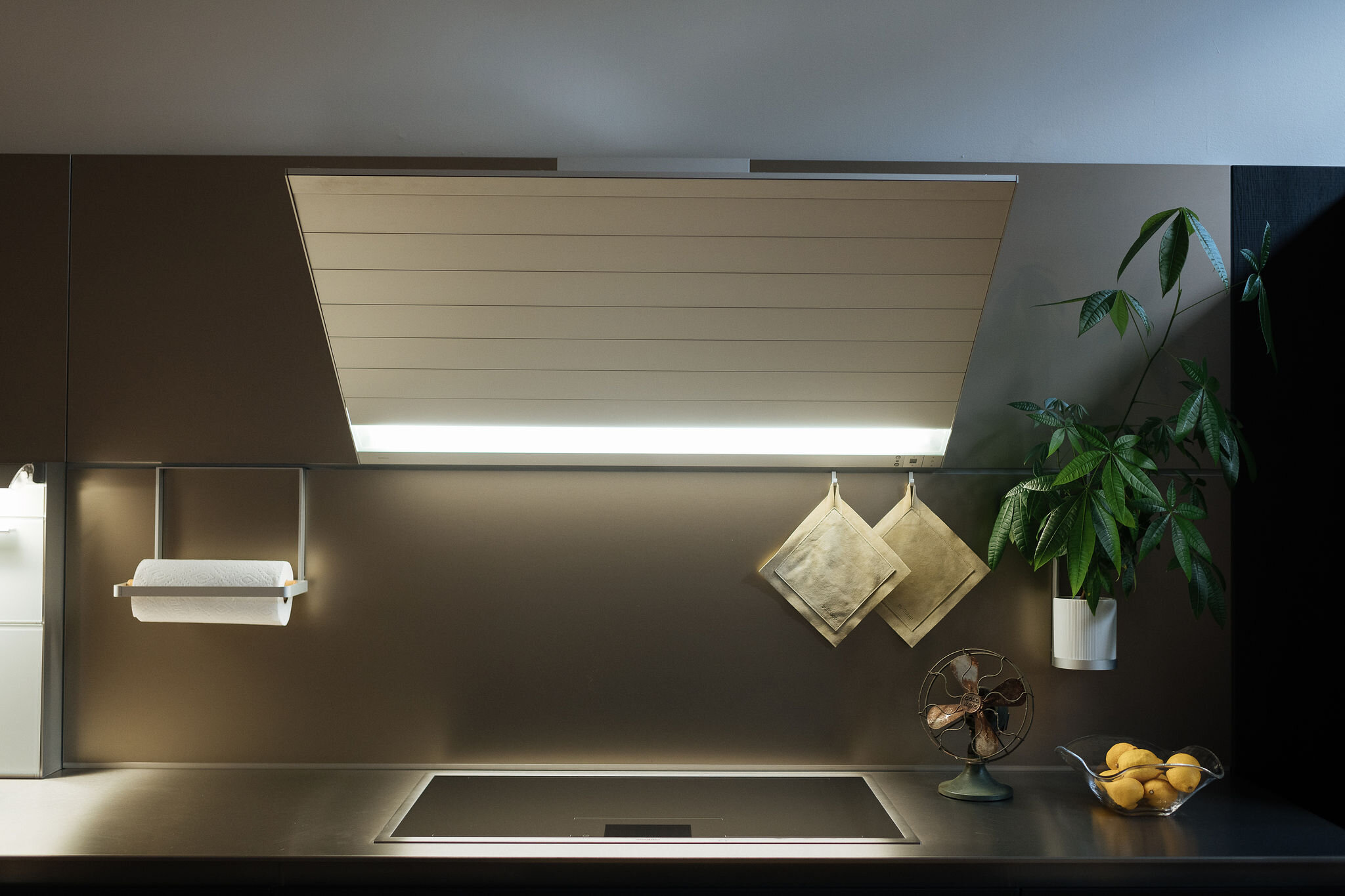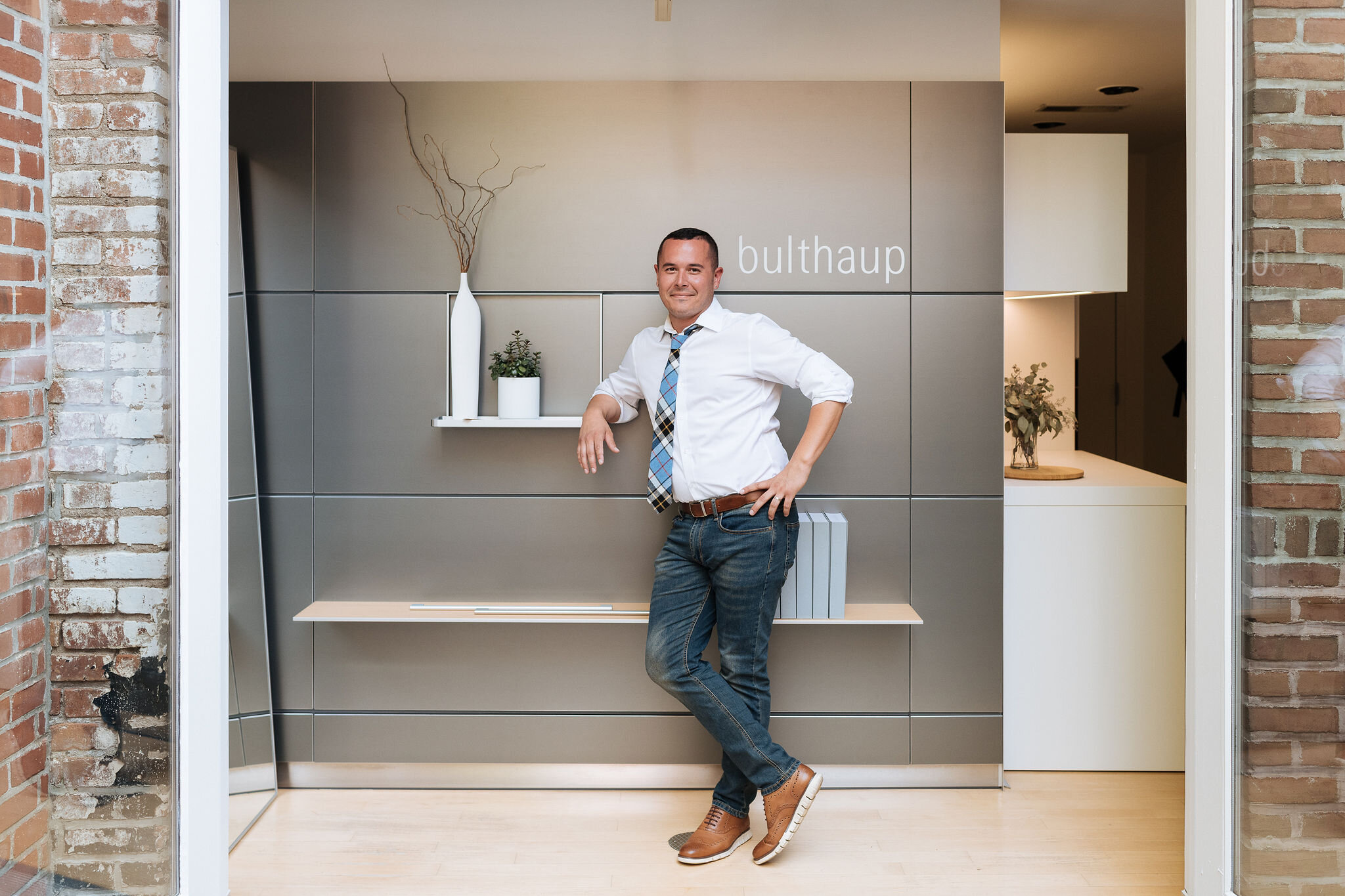‘I Think Kitchens are Where the Heart of the Home Beats’
Alex Morrison
Designer, bulthaup
3324 Cady’s Alley NW
A wine dispenser in the wall is starting to sound like a great idea to Alex Morrison. Consider it a hazard of the job.
‘I’ve spent a lot of time working on other people’s visions for their kitchen and seeing the multitude of things that are possible, and—even worse—the improvements over time. I’m constantly right on the breast of knowing what’s upcoming, while trying to tamper down my own wish list to be reasonable. It’s a slippery slope.’
Now five years into his role as a designer at bulthaup—a German kitchen design showroom in Cady’s Alley—Alex always had an interest in well-functioning spaces, but didn’t expect he’d end up here.
Born and raised in St. Michael’s, Maryland—a sleepy, waterfront town without a single traffic light—Alex was always the kid pushing furniture around. Half of his parents’ two-car garage served as his Dad’s workshop, which he’d often come home to find rearranged.
‘I drove my parents up the wall, but I was an only child with a lot of energy, and I needed to get it out. I’m never happier than seeing someone in a space that I helped create, and that was the driving force since I was little. It was something I’ve always known to be a part of me.’
Alex was one of seven in his high school class who left the state for college, earning a Master’s degree in architecture from the Savannah College of Art and Design, with a double minor in interior and electronic design. He graduated in 2009, entering an economy that wasn’t ripe for small boutique firms.
‘I had three job offers from firms all over the U.S., and every single one folded by the end of that year.’
Forced to recalibrate, Alex moved to Chicago and found a job doing custom installation design for Bang & Olufsen, a luxury Danish consumer electronics company.
‘It ultimately gave me my love for very propriety, very finicky European systems. I was romanticized by the fact that they just took charge of everything in-house and left nothing to chance, which is what bulthaup does.’
When Alex was suddenly laid off, he pivoted a second time. His husband—whom he’d been dating for six months at the time—was moving back to DC, and Alex decided to follow. If he could find a job and housing, he’d stay.
‘It’s a very happenstance tale, and here we are, seven years later. I’ve carved out my own little niche.’
Both personally and professionally, Alex found his match. Rooted in family-owned, bespoke Bavarian craftsmanship, bulthaup prides itself on a precision that Alex calls magical in today’s market—some of its finishes poured within half a millimeter of tolerance.
With full confidence in the product, Alex works with clients to see a project in full—considering not only how the kitchen relates to the rest of the home, but what else is going on in the house to create a common design thread.
‘What I didn’t like about architecture, and the philosophy or character I observed at most firms, is you’re just there to produce for the sake of production. I was starved for the creative side of it and I didn’t enjoy just doing schedules and door details and these menial things that added up to a really beautiful project, but I could never see the full scope because we were so zoomed in.’
Working closely with clients on every aspect of the kitchen design, Alex says they’re evenly split between active chefs who enjoy being immersed in the kitchen, and those who go out to eat nearly every night, and simply want something that looks beautiful. Either way, he’s learned the kitchen is the heart of the home.
‘It’s where everyone begins their day, it’s where they end their day. It’s where they have their biggest celebrations and their toughest moments. It’s also the root of where most of the design trickles from. Your kitchen is where your home beats.’
Part kitchen designer, master organizer, and occasional marriage counselor, Alex fields many opinions when it comes to the kitchen—some of which don’t align. He says the children have even driven some projects—the home intended to be a family heirloom that would allow future generations to grow into the space.
‘I think that’s a beautiful mentality to approach a kitchen design, because a kitchen is an otherwise fixed space. There isn’t a lot of flexibility, so forecasting five, 10, 30 years down the road of how it’s going to be used, and what will the people be doing in it, is a beautiful aspect to this work.’
Alex’s 8’x8’ Kalorama kitchen may not enjoy the same multi-generational approach.
‘I have a builder’s grade kitchen in my condo that I hate with a passion that burns brighter than a thousand suns, and I’m kind of stuck right now because I’m not sure what to do. I’m not sure when I’ll be 100% satisfied. That comes from being involved in so many people’s projects.’
Leaving the cooking to his husband, Alex prioritizes an ergonomic design that allows him to tackle clean-up duties more efficiently. Pulling from his own experience, he’s encouraged clients to think about everything from how they unload a dishwasher, to where those plates will go, and what type of pivot points they have in the kitchen.
It’s no surprise that within the bulthaup collection, he most covets the aptly named Function Box—a knife block and chopping board that fold into the wall above the countertop like Murphy bed’s sleeker cousin. For someone who’s ‘stubbornly detail-oriented’, it speaks right to his heart.
‘It’s the most honest use of the most useless amount of space that I’ve ever seen. They’ve sent us to Milan to see new and exciting things coming out of different designers, and the Function Box is still the most studied, and greatest value for the price. In a small kitchen, anything that takes something out of a set of drawers that could give that set of drawers back to me is a true winner in my book. That’s my love affair item.’
Personal wish lists aside, Alex takes the most pleasure from seeing the end product of each project—the culmination of six months to a year of work, on average.
‘During that final delivery, we bring a nice bottle of wine. More often than not, clients are eager to open it up and toast with us. Until we were standing in that space, it was lines on a piece of paper, or boards in our German factory. It’s really special to be part of that.’
